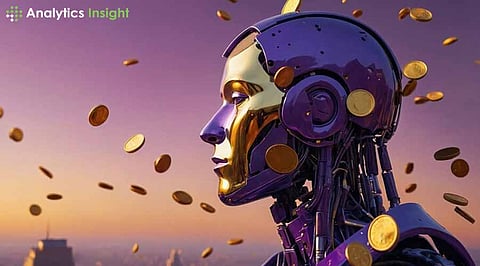

Cryptocurrency trading has emerged as a rapidly evolving field fueled by technological innovation and constant growth. One of the most impactful developments lately is the rise of Artificial Intelligence in crypto trading.
The trading system relies on algorithms in machine learning, automation, and real-time data analysis in executing trades. It is the future of trading and may be able to alter how investors will interact with the crypto market. So, is AI the future of investing?
AI in crypto trading operates through algorithms that analyze voluminous market data within seconds. Such systems look into price changes, historical changes, and volume changes to calculate the future directions of price shifts. AI makes trading decisions on its own basis and does not have emotional fluctuations while making judgments. There are two types of AI-driven strategies:
Algorithmic Trading: They execute trades by following pre-defined rules based on the market scenario.
Machine Learning Models: Continuously refine their predictions by studying past trading patterns.
Sentiment Analysis: Scans news articles, social media, and forums to get a feel for the market's sentiment.
High-Frequency Trading (HFT): Executes hundreds of thousands of trades in a matter of milliseconds to exploit tiny price movements.
These strategies all work together to give traders great insights and automate much of the decision-making process.
AI-driven trading systems have several advantages that make the investment experience better:
AI algorithms can process vast amounts of data instantly and execute trades within fractions of a second. This reduces delays and ensures quick responses to market changes.
Unlike traditional stock markets, the crypto market runs 24/7. Using AI trading bots allows uninterrupted trading, meaning no opportunity to gain profit will pass.
Human traders base their decisions on emotions, for example, fear or greed. AI removes the bias; thus, rational and data-driven trades are done.
AI algorithms can be used to spot potential risks and suggest strategies for minimizing losses. Stop-loss mechanisms and predictive analytics help in risk management.
AI analyzes historical data and market trends to give valuable insights that help traders make informed decisions.
It does have some significant challenges despite these advantages:
The most volatile cryptocurrencies cannot be predicted through AI models due to the nature of unpredictable and sudden crashes in the market.
AI is good only to the extent of training data. Data of poor quality or algorithms become outdated and inaccurate predictions result in financial losses.
Automated trading systems are also vulnerable to hacking, cyber-attacks, or even system malfunctions, thus being a risk factor for investors.
Cryptocurrency regulation is different from one country to another. The use of AI in trading may have legal restrictions or compliance issues in some regions.
The development and maintenance of AI trading systems need significant financial inputs, making it less accessible to small-scale investors.
AI has no doubt improved the efficiency of trading significantly. Still, it probably cannot replace human traders. Data processing and order execution are faster for AI than humans, but it is primarily a matter of intuition and experience when it comes to understanding market sentiments and strategizing in unexpected events.
AI is better employed as an aid to traders rather than a substitute. Several successful investors made profits and kept risks at bay by utilizing the insights received from AI and superimposing human expertise.
AI-powered crypto trading is scripting the future for investing as it delivers full automation, high speed, and data-based decision-making capabilities. There are already many benefits through AI, but there are also some risks that have to be accounted for very carefully.
AI technology applied with human judgment will be the best approach to creating a balance within an effective trading strategy. The role of AI in crypto trading is expected to grow further as the development of AI continues, thereby making investments smarter and more efficient for the future.
